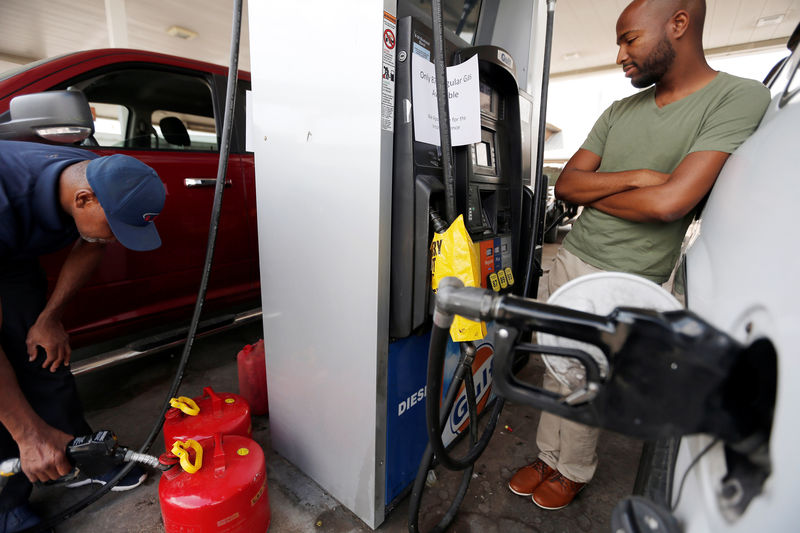By Catherine Ngai
HOUSTON (Reuters) - Two key fuel pipelines were set to start up on Monday after certain segments in Texas were shut because of Hurricane Harvey, helping alleviate concerns about rising retail prices and the domestic distribution of gasoline and distillates.
Colonial Pipeline Co, the biggest U.S. fuel system, said on Sunday it planned to reopen the main distillate line between Houston and Hebert, Texas, on Monday, and the gasoline line between those two points on Tuesday. The company had initially aimed to restart both its lines by Sunday.
The company's pipelines connect refineries along the U.S. Gulf Coast to markets in the Northeast, transporting more than 3 million barrels a day of gasoline, diesel and jet fuel.
Explorer Pipeline said late on Sunday that its Texas-to-Oklahoma 28-inch fuel pipeline started up as expected. Its 24-inch fuel pipeline, which will run from Oklahoma into the U.S. Midwest, will restart on Monday.
The return of supply eased some concerns after the storm took down nearly a quarter of U.S. oil refining capacity, hit oil and gas platforms along the Gulf and lifted average gasoline prices by more than 20 cents since Aug. 23.
U.S. gasoline futures (RBc1) fell by 3 percent in early trade on Sunday. Futures prices had traded at a two-year high on fears of supply shortages. Gasoline margins
Colonial is also petitioning the Federal Energy Regulatory Commission to allow it to move so-called transitionary gasoline, a grade between summer and winter blend, which would ease the supply crunch.
On Sunday, average retail prices rose again, to $2.621 a gallon, with weekly increases hitting 18 percent in Georgia and 19 percent in South Carolina, according to motorists advocacy group AAA.
The hurricane battered Texas before weakening to a tropical storm and inundated the region with torrential rains and flooding. Several refineries, terminals, drilling platforms and other facilities were working to restart or return to normal operations on Sunday.
About 5.5 percent of the Gulf's oil production and 8.4 percent of the natural gas output remained shut, the federal Bureau of Safety and Environmental Enforcement said, while operators began inspecting facilities and resuming work.
The total lost production in the Gulf since platforms started shutting is about 2.97 million barrels of oil and 6.35 billion cubic feet of gas.
ExxonMobil Corp (N:XOM) said on Sunday that its Hadrian South subsea production system and Galveston 209 platform in the U.S. Gulf of Mexico were back online after shutting because of Harvey.
The firm had said over the weekend that it began restarting the country's second-largest oil facility, the 560,500-barrel- per-day Baytown, Texas, refinery, while Phillips 66 (N:PSX) said it was working to resume operations at its 247,000-bpd Sweeny refinery.
Pipelines and terminals have also been restarting over the weekend, assuaging worries over the ability of refineries to get the crude oil they need to operate.

Still, several Texas ports remained closed to large vessels, limiting discharge of imported crude and products.